What’s the buzz? Until a decade or two ago, Karaköy was a scruffy port dating back to the Byzantine era, on the north bank of the inlet known as the Golden Horn as it meets the Bosphorus. Guidebooks called it gritty.
But over the past decade the area has undergone a $1.7bn transformation, not least to create the world’s first underground cruise-ship terminal, inspired by the city’s Roman cisterns (the ones in the James Bond movie From Russia with Love). Designed by the Istanbul practice Autoban, the terminal uses a sequence of hydraulic metal barriers. When no ship is in dock, these lie flat on the promenade and you wouldn’t know the terminal was there; when a ship approaches, they fold up to create a barrier, revealing walkways that passengers descend to reach customs.
Now known as Galataport, the area is defined by its 1,200m-long esplanade, lined with shops, restaurants and cafés, and busy with promenaders and cats. It’s also home to two newly relocated public art galleries, the Istanbul Museum of Painting and Sculpture, converted from a former warehouse; and Istanbul Modern, which reopened in a new landmark building of glass and rippling aluminium by Renzo Piano, and which definitely rewards a couple of hours.

Visitors stroll past the new Istanbul Modern gallery at Galataport; the hydraulic panels, which fold up to reveal entrances to the underground cruise-ship terminal, are visible in the centre of the esplanade © Enrico Cano
And, of course, there’s a hotel, The Peninsula, one of 11 properties owned and operated by Hongkong and Shanghai Hotels, which should be fully open by the end of this month, even if parts of the surroundings remain a work in progress.
It’s only a sad indictment of our times that just to reach the esplanade you must pass through a knife arch and have your bag scanned.
Location, location, location From a tourist’s point of view, the Peninsula Istanbul could not be better. You’re in walking distance of practically every major sight, just five minutes from the Galata Bridge, which leads across the Golden Horn to Sultanahmet, site of the Topkapi Palace, Hagia Sophia and the Sultan Ahmed (or Blue) Mosque — all of which are visible from the Bosphorus-facing rooms — as well as the Grand Bazaar and, tucked behind the Egyptian Bazaar and perhaps the most glorious mosque of them all, Rüstem Paşha. Just behind Galataport stands another less visited mosque, Kılıç Ali Pasha — designed by Mimar Sinan, the great 16th-century Ottoman architect of the city’s most beautiful places of worship (not to mention the Zeyrek Çinili Hamam, built in the 1530s and due to reopen after a 12-year restoration in September).
Checking in The hotel consists of three historic buildings and a new extension. At its heart is the former Karaköy passenger terminal, designed in the Bauhaus style in 1937 by Rebii Gorbon and recognisable from a distance by its square clock tower. On either side stand two buildings from the late Ottoman era — one Art Nouveau with a distinctive tiled facade, dating from 1910; the other white-stucco Belle Époque from 1912. A new glass and bronze-coated aluminium addition houses further guest rooms with terraces, as well as an immense ballroom that is already proving popular for weddings.
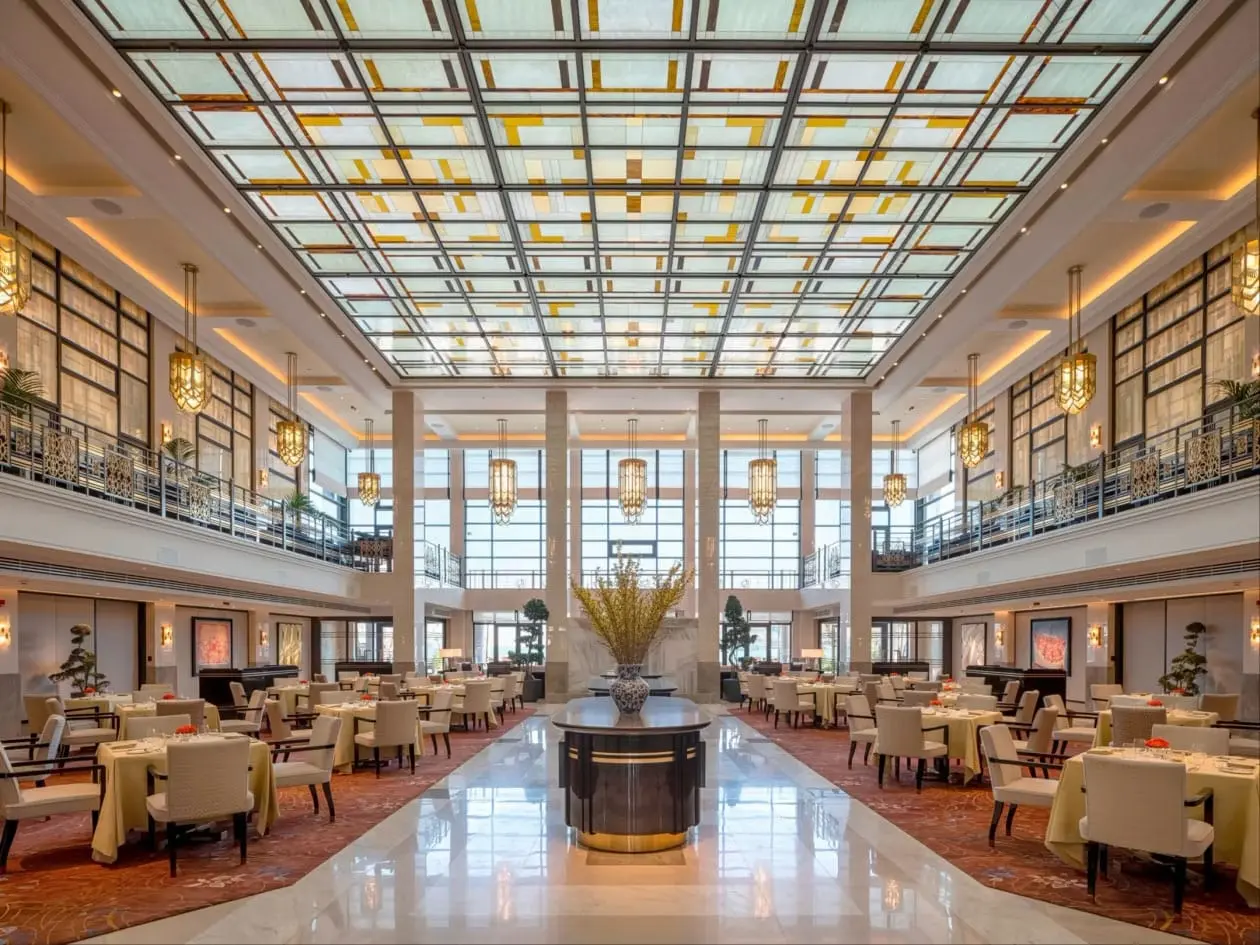
The Lobby, one of the hotel’s two restaurants, in the restored passenger terminal building © Emre Dorter
The hotel’s interiors have been designed by Zeynep Fadıllıoğlu, the architect of, among many other projects, the city’s Şakirin Mosque on the Asian side of the Bosphorus. On the face of it, the style is what you might call classically contemporary: expensive fabrics in neutral colours, lacquered and dark-wood furniture with brass accents and acres of pale grey striated Marmara marble. Look closely, however, and Fadıllıoğlu has incorporated all sorts of traditional details that allude to the decorative arts you find in Sinan’s mosques.
Look at the way the marble on the bathroom floor is inlaid with mother of pearl, and the pattern of its lantern tiles repeated in the embroidery on the bed linen and woven into the cotton of the pillowcases. See how the light fittings about the 25m indoor pool evoke the honeycomb carving of muqarnas domes.
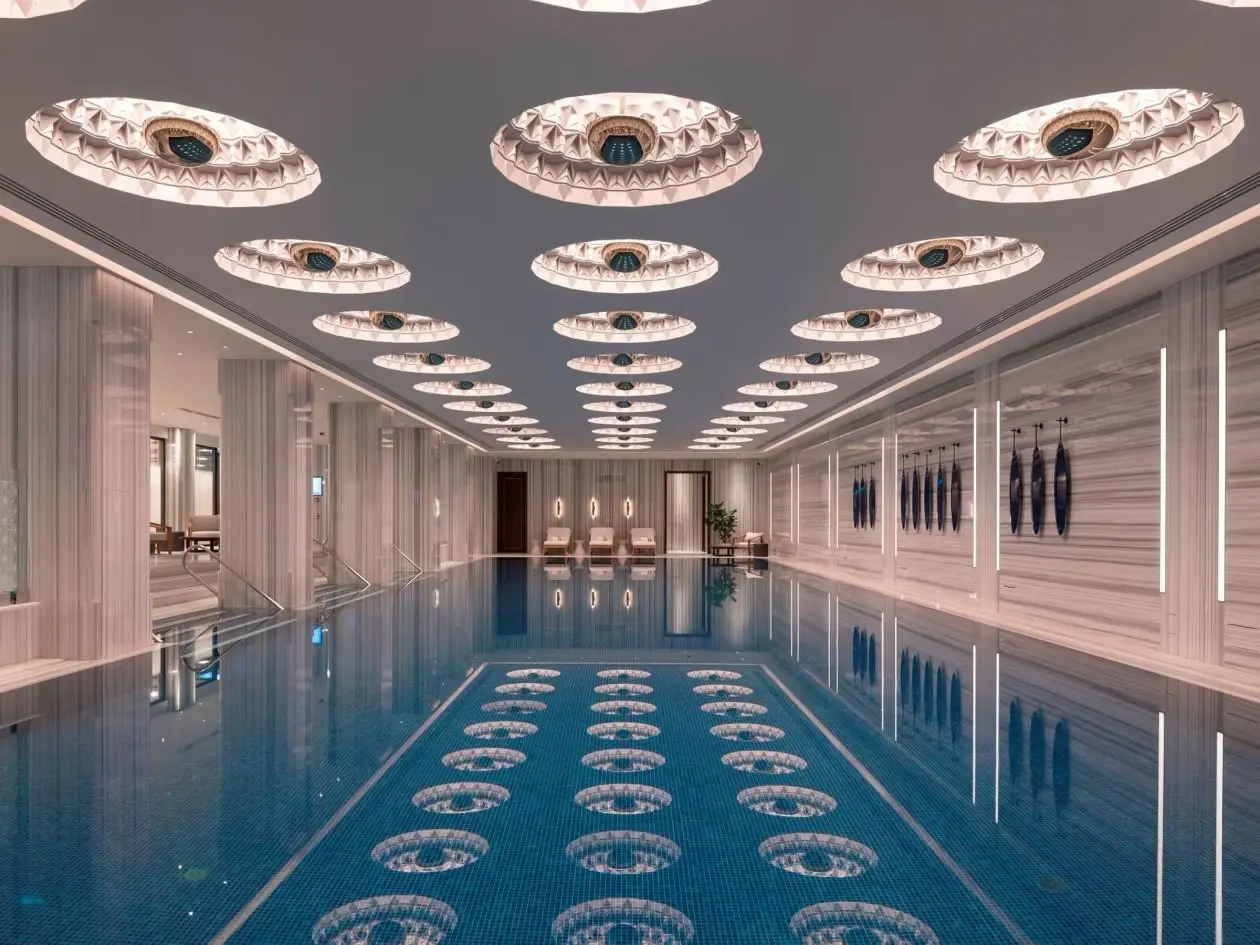
The hotel’s indoor pool features light fittings designed to evoke the honeycomb carving of muqarnas domes © Emre Dorter
Peninsula has spared no expense when it comes to technology, either. The lighting and air con are all controlled by easy-to-figure-out touch screens (slightly too many of them — there were seven in my bedroom if you count the tablets either side of the bed). But I did like the one that alerted me to real-time weather conditions outside, detailing air temperature, wind speed, humidity and UV index.
Occasionally, the tech seems superfluous. The nail drier in the dressing-table drawer, for instance. And the magnetic wireless chargers in the bedside-table drawers are a great idea, but they mean removing your phone from its case, so it’s easier just to use the USB ports.
What to do? The corridors of the hotel are hung with photographs by Ara Güler (1928-2018), who documented daily life in Istanbul from the 1940s to the ’80s. I’d expressed an interest in his work, and one of the staff suggested I might like to do a walk “in his footsteps”, one of the tours offered by the Peninsula Academy, the hotel’s perhaps pretentiously named “learning and activity programme created to provide a personalised introduction” to local culture.
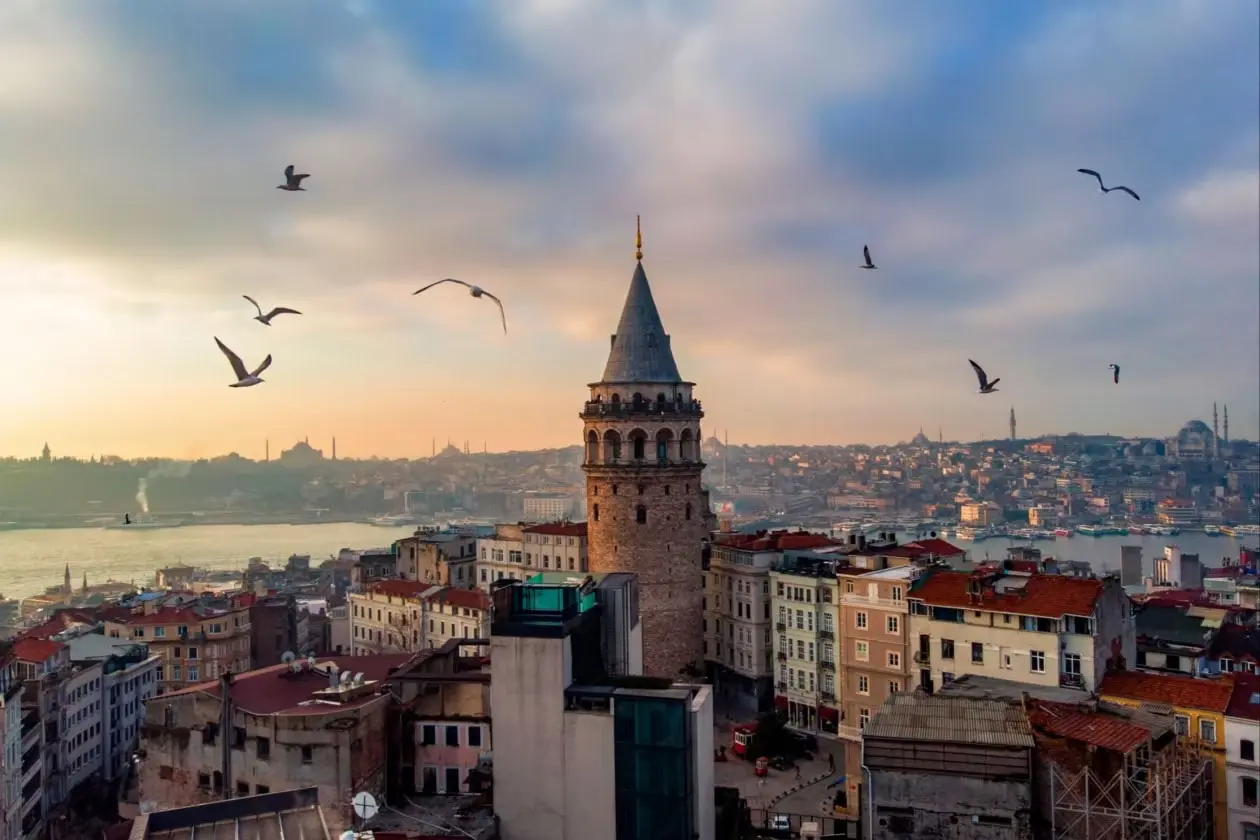
A view over the Galata Tower, just above Galataport. It was originally built as a watchtower and is now a museum and exhibition space © Getty Images
My guide, Sinan Sökmen, was the supremely erudite and engaging founder of Istanbul Tour Studio (and co-author of an excellent English-language guidebook, Monday to Sunday Istanbul, which ought to be in every one of the Peninsula’s bedrooms). Our leisurely four-hour walk took me to places I would never otherwise have found, most memorably an ancient caravanserai, now used as light-industrial workshops, its water pump mounted on the upturned capital of a Roman Corinthian column; and three out-of-the-way Sinan mosques — Şehzade, Sokollu Mehmed Pasha and Mihrimah Sultan — where I was the only tourist.
We drank tea in the shade of an arch of the Roman Aqueduct of Valens; and boza, a sweet, thick drink of fermented maize sprinkled with cinnamon, in a café that has barely changed since Atatürk drank there in the 1930s. (His glass is preserved in a vitrine, reminiscent of those in the Museum of Innocence, founded by the writer Orhan Pamuk as an adjunct to his 2008 novel of the same name, a profoundly thought-provoking meditation on the value of museums as repositories of memory and another must-visit. It too is a 15-minute walk from the Peninsula.)
What about the food? The Turkish chef Fatih Tutak worked at both Noma in Copenhagen and Nihonryori Ryugin in Tokyo before returning to Istanbul to set up his own restaurant, Turk Fatih Tutak, which promptly won two Michelin stars. On July 7, he opened Gallada on the roof of the Peninsula’s Bauhaus building, with a huge terrace planted with 30 pomegranate trees and offering panoramic views of Sultanahmet. Here, however, the vibe is “fun dining, not fine dining”, explained its manager.
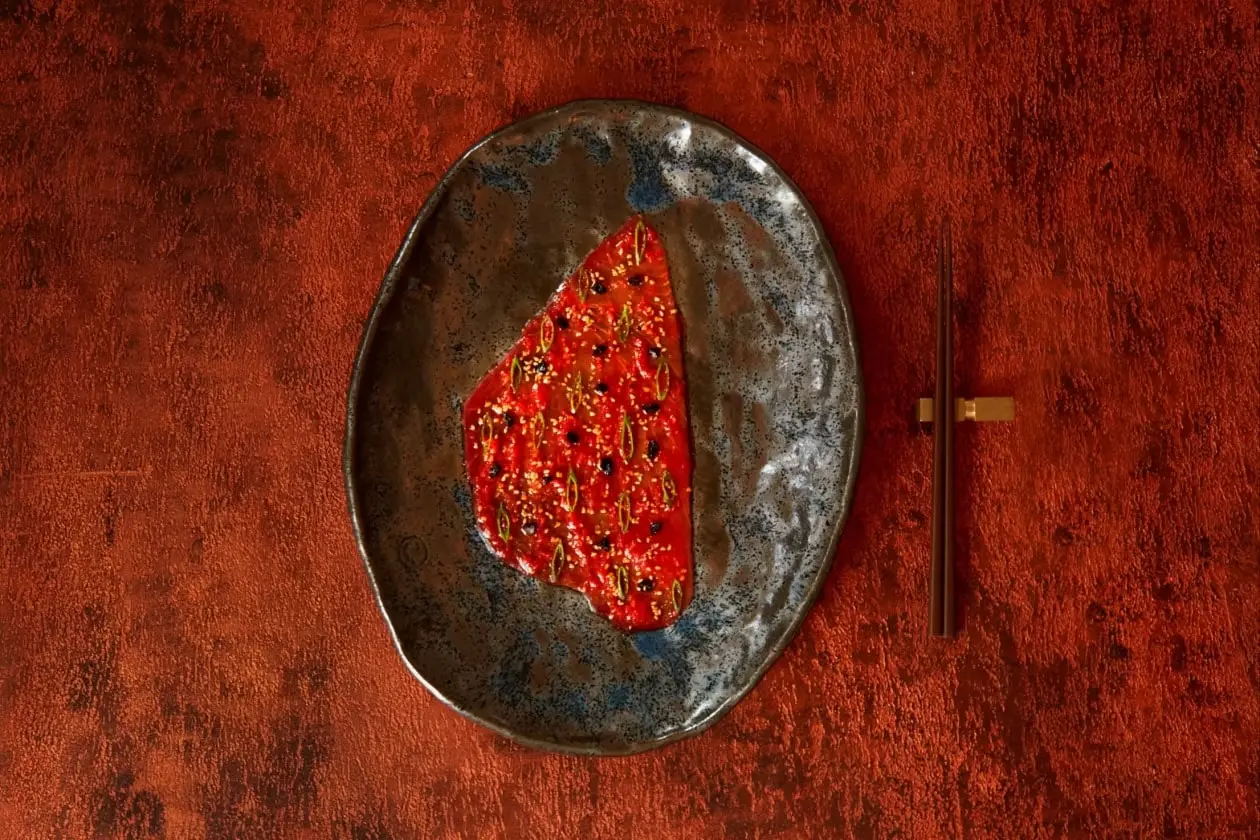
Dishes at Gallada are inspired by chef Fatih Tutak’s travels along the old Silk Road
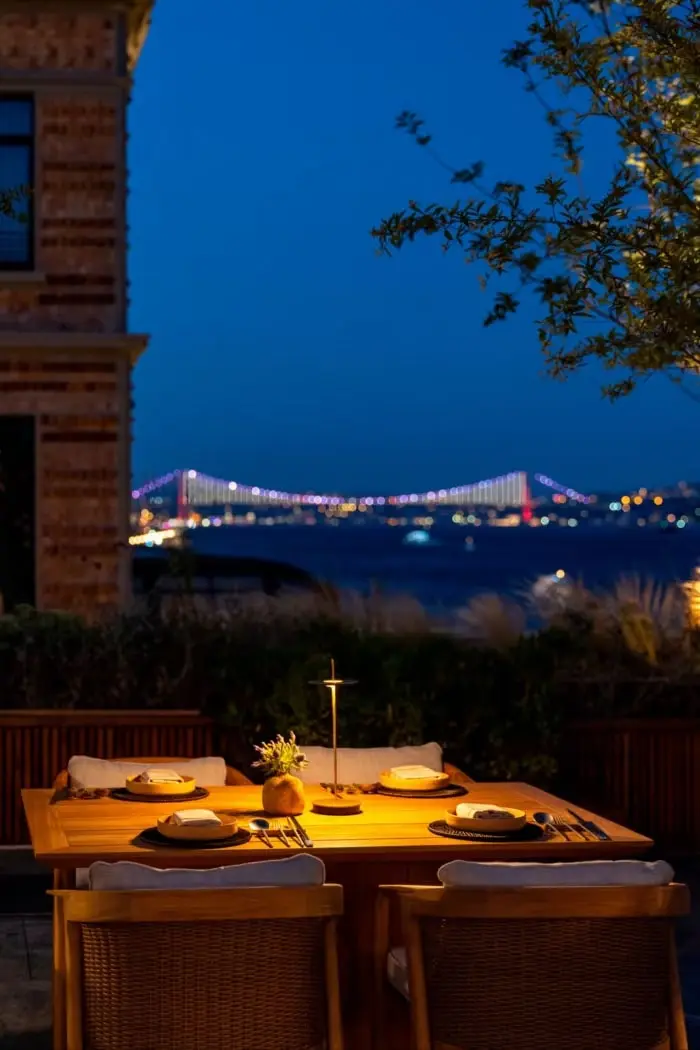
The restaurant’s roof terrace . . . © Emre Dorter
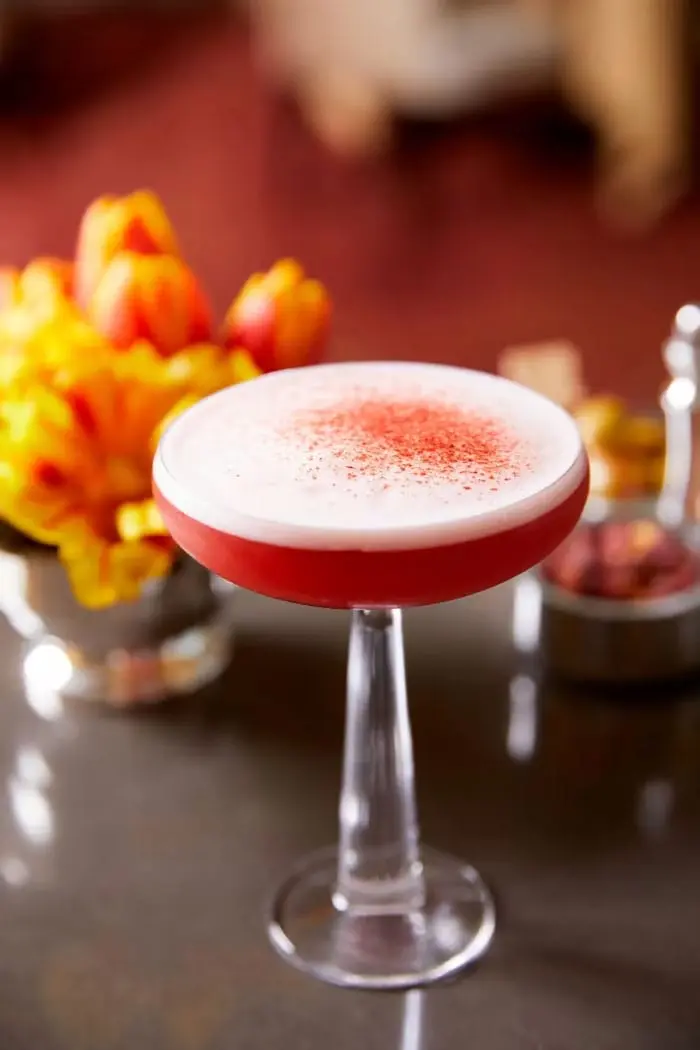
. . . and one of its signature cocktails
The menu has been inspired by Tutak’s travels along the old Silk Road, from the Uyghur city of Kashgar in China through Kazakhstan, Uzbekistan and Kyrgyzstan, all countries, he insists, with “mind-blowing” cuisines (not every traveller’s experience of Central Asian hospitality) that have synthesised into what we think of as Turkish cooking.
I especially enjoyed the three ways with artichoke (puréed, sliced and deep-fried to a crisp) with a salad of punchy herbs; the steamed, translucent manti, like half-moon dim sum, stuffed with morels; and, best of all, monkfish marinated in a paste of squid ink and garlic, cooked over wood and surrounded by a pool of yoghurt flavoured with fenugreek, sprinkled with coriander seeds and drizzled with ginger oil.
The food here is still expensive (starters from £11 to £18, main courses £28 to £58), but there are DJs — and a great playlist of Turkish and Central Asian dance music — and cocktails which involve not just spirits but also ingredients such as fig and rose jam, lemongrass cordial, Sichuan oil, tomato tea sherbet, ginger tea and turmeric.
The hotel has a second restaurant, The Lobby, which offers a broadly international menu (the chef, Alessandro Santi, is Italian) and another superb terrace, this time on the waterfront, half of it shaded by a pergola of vines and flanked by luxuriant gardens of succulents, grasses and other drought-tolerant plants, designed by the Swiss landscape architect Enzo Enea.
Other guests Mostly there were family groups and couples from the US, where Peninsula has hotels in New York, Chicago and Los Angeles, so brand recognition is high. The party of finance bros and their wives at the neighbouring table at breakfast on my first morning were straight out of The White Lotus.
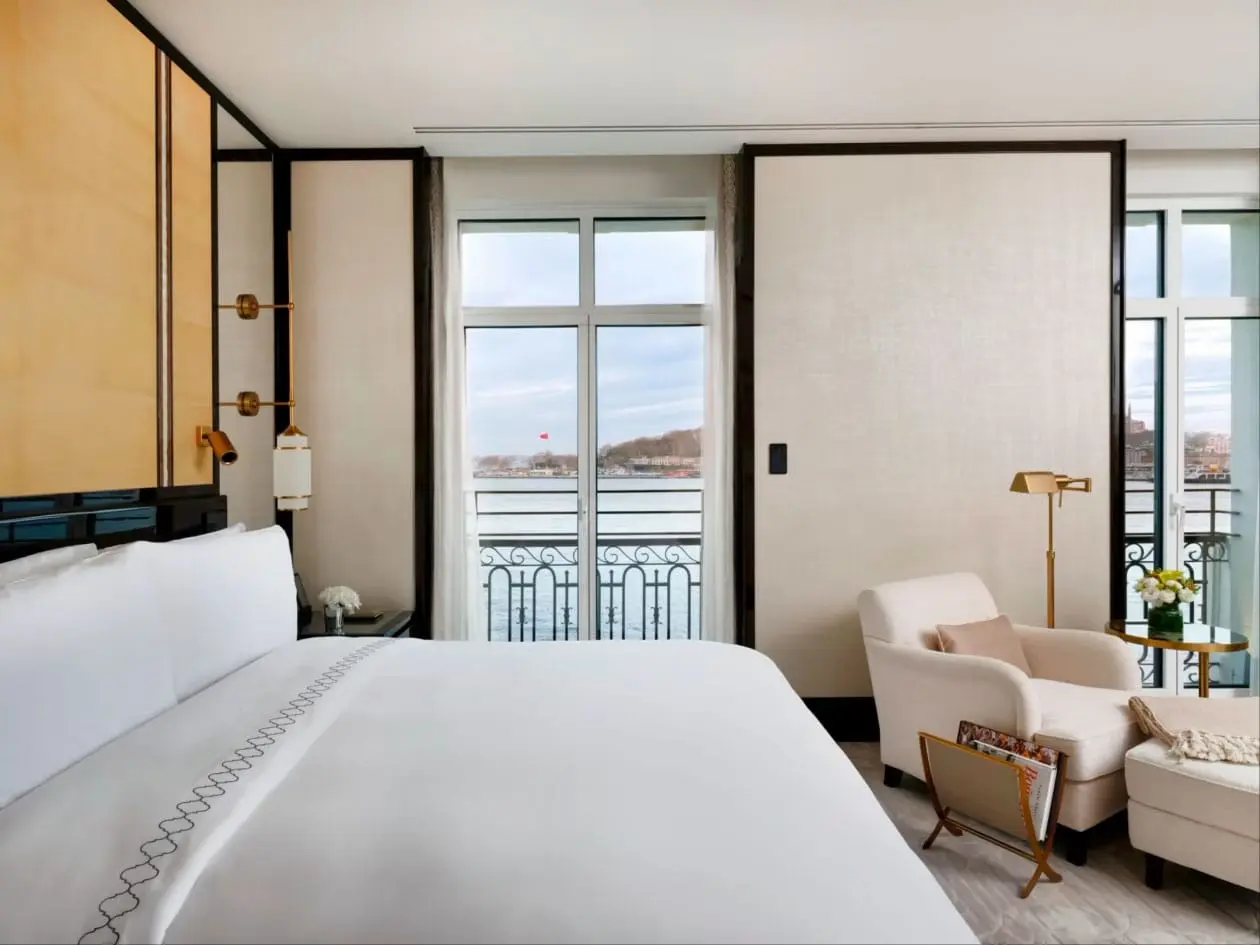
Views over the Bosphorus from one of the hotel’s suites © Emre Dorter
Mexico and Brazil, too, are growing markets, notes the British general manager, Jonathan Crook — especially for those travelling to other destinations served by Turkish Airlines, who break the journey here to see the city ahead of a holiday in the Maldives or a safari in southern Africa.
The damage It’s among the city’s most expensive hotels: the cheapest of the 22 room categories starts at €808 plus €125.17 in tax and service charge. If you want a river view, the official rate for a 50 sq m Superior Bosphorus Room starts at €1,600, excluding breakfast. Alternatively, stay at the Novotel on the other side of the same street and come for breakfast and dinner.
Elevator pitch A grand hotel, a perfect location and, I’d say, a legend in the making.



